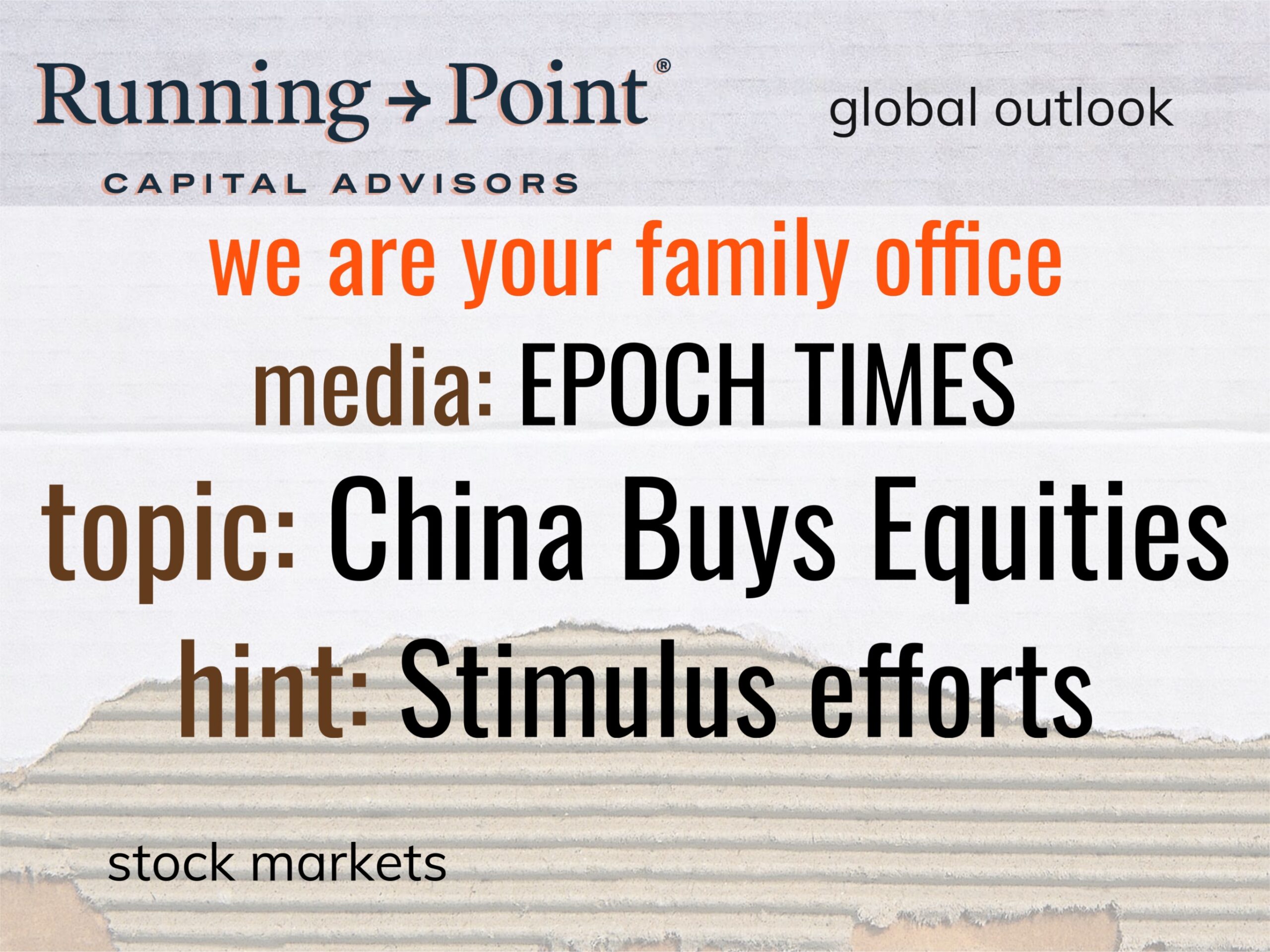I hope this note finds you and your family well. Over the last several weeks, a few people have approached us with different variants of the same question: What is happening with stock dividends, how will dividend changes affect the income or yield of my investment portfolio, and what do dividends mean for my investments in general? From my experience as a teaching assistant at MIT, when more than one person approaches with a similar question, a lot more people have the same thing in mind. Hence, this week’s perspective regarding equity dividends.
The big picture answer to dividends lies in understanding that a stock’s return is a composed of two elements, dividend income and capital gains:
Equity Dividend Income + Equity Capital Appreciation = Equity Total Return
Equity dividend income is a direct distribution from a company to its shareholders. If a company did not directly distribute income to shareholders, those funds could be used to reduce debt, buyback shares, fund an acquisition, increase research and development, or strengthen the balance sheet, most of which would likely raise the value of the company from a capital perspective. Amongst these options, a merger or acquisition is one of the quickest ways to grow a company’s earnings and value. Thus, if equity income is not distributed to investors, that same money can still increase Equity Total Return by bolstering the Equity Capital side of the equation. Although dividend income often feels nice, corporate actions that bolster capital gains can be more tax efficient and often more accretive to total return. It is with all this in mind that this week’s perspective covers the current dividend climate: yields remain attractive and even though some companies may decrease dividends, the net effect will be to bolster potential capital gains, and thus total expected returns should be similar.
Less Dividends and Less Share Buybacks Mean More Mergers and Acquisitions
SUMMARY
- Many companies are reducing dividends and share buybacks to conserve cash
- Crisis relief from the $2 trillion CARES Act and the US Treasury also has stipulations that will stop corporate dividends and share buybacks
- Other companies with stronger balance sheets will feel social and political pressure against returning funds to shareholders through dividends and buybacks
- In a slow growth environment, if companies can’t grow shareholder value through buybacks or dividends, they will grow value through mergers and acquisitions (M&A)
- We may see industry consolidation led by strong public firms and private equity firms flush with cash
DETAIL
Expect average dividend payouts for the S&P 500 to decline from where they were at the beginning of the year. The oil, oil service, travel, entertainment, furniture, casino, retail, and restaurant Expect average dividend payouts for the S&P 500 to decline from where they were at the beginning of the year. The oil, oil service, travel, entertainment, furniture, casino, retail, and restaurant industries as well as many other pandemic affected companies are reducing or eliminating dividends in order to conserve cash. Even more companies are suspending their share buyback programs for similar reasons.
- Dividends have been suspended by restaurants (Darden Restaurants, Bloomin’ Brands, and Texas Roadhouse), travel-related companies (Choice Hotels, Marriott International, Sabre, Delta Airlines, Alaska Air, Boeing, and Carnival), retailers (Macy’s, Nordstrom, and Coach), and others (WPP, Herman Miller, Ford Motor, SL Green Realty, Old Dominion Freight Line, Bed Bath &Beyond, and Freeport-McMoRan). Dividends have also been cut by energy companies (Apache, Continental Resources, Occidental Petroleum, Targa Resources, and DCP Midstream)
- Amongst banks, JP Morgan, Bank of America, Citigroup, Morgan Stanley, and Goldman Sachs have put stock buybacks on hold, but have maintained dividends
- Other example companies with suspended buyback programs include Advance Auto Parts, WD-40, VF Corp, and Genuine Parts
In addition, much of the large company relief coming from the $2 trillion CARES Act and the US Treasury has stipulations that will stop corporate dividends and share buybacks from those companies that take the aid.
Nonetheless, overall U.S. stock yields still appear enticing, especially since the Federal Reserve has dropped short term borrowing costs by 1.5% to near zero since the beginning of the year. Even with already announced dividend cuts, the S&P 500 equity index is projected to yield approximately 2%; that is more than six times the yield of a 5-year U.S. Treasury at 0.34% and nearly four times the yield of a 10-year U.S. Treasury at 0.57%. Treasury yields will likely remain low for quite a while, which means that corporate and municipal bonds should also offer relatively good yields too.
In slow growth economies, where organic growth is difficult, companies often expand through mergers and acquisitions (M&A),otherwise known as inorganic growth. If companies feel further restrained from increasing value through buybacks or dividends because of social or political pressure against directly rewarding shareholders, they may be even more likely to attempt M&A expansion. As Frank Timmons, CIO of Pier 88 Investment Partners and manager of the Lake Geneva Fund stated recently, “The current political landscape is pushing back on larger companies paying dividends and implementing stock buybacks. It seems obvious that inorganic growth and external innovation will be an increasingly primary use of excess cash.” In addition to companies like Berkshire Hathaway, Apple, Facebook, Google, and others sitting on hundreds of billions of dollars of cash, private equity firms, have approximately $1.5 trillion of dry powder –a record amount of undeployed capital, according to Preqin financial data services in London – looking for acquisitions. Therefore, in the wake of the pandemic crisis, we expect to see industry consolidation and corporate growth through mergers and acquisitions.
Michael Ashley Schulman, CFA
Partner, Chief Investment Officer
Disclosure: The opinions expressed herein are those of Running Point Capital Advisors, LLC (“Running Point”) and are subject to change without notice. Running Point reserves the right to modify its current investment strategies and techniques based on changing market dynamics or client needs. This should not be considered investment advice or an offer to sell any product. Running Point is an independent investment adviser registered under the Investment Advisers Act of 1940, as amended. Registration does not imply a certain level of skill or training. More information about Running Point, including our investment strategies, fees and objectives can be found in our ADV Part 2, which is available upon request. RP-20-09


